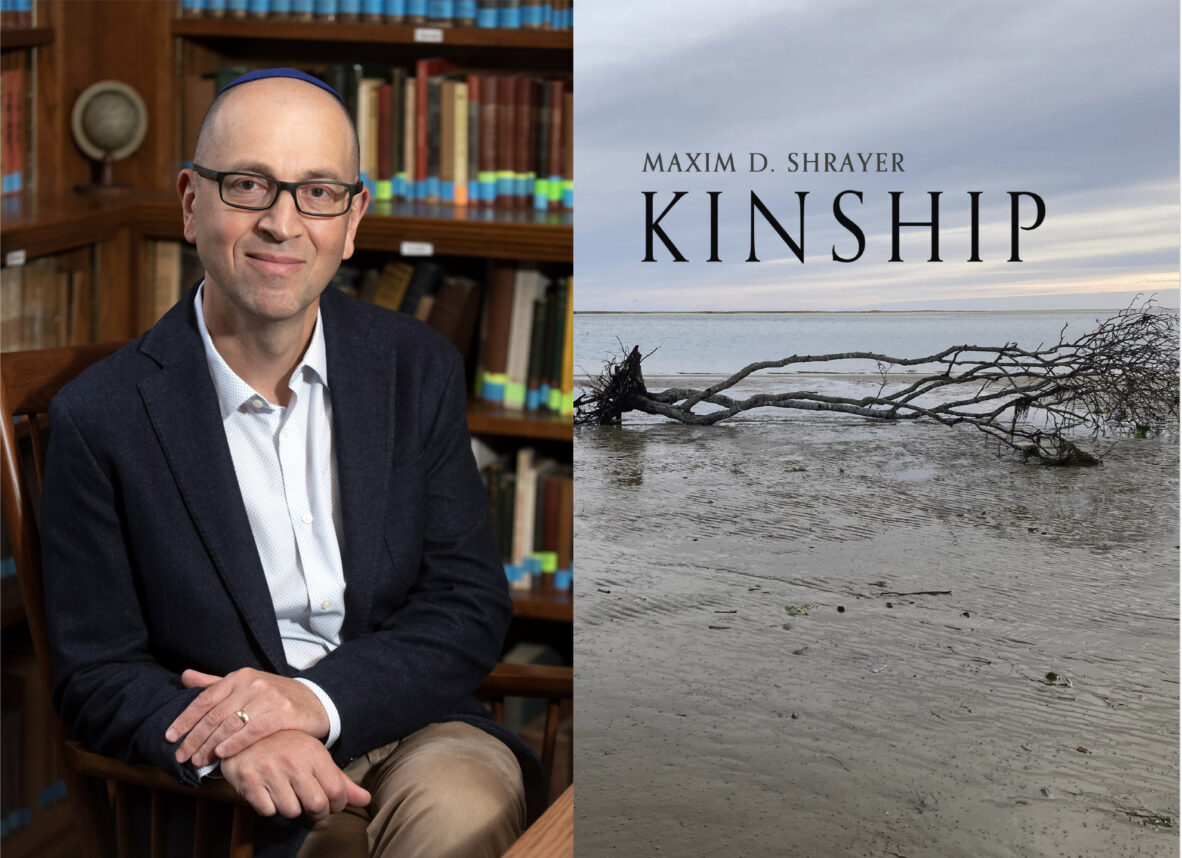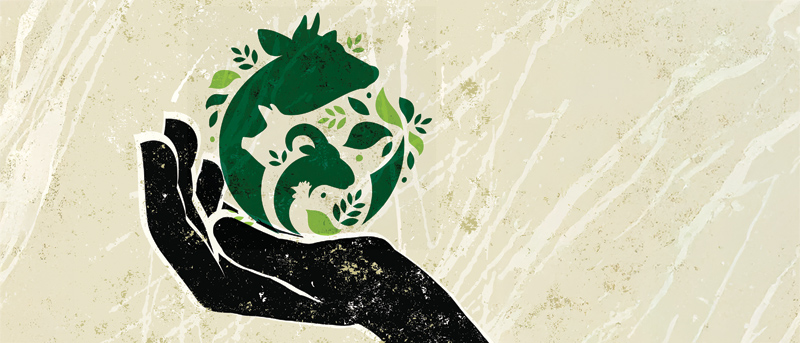
One verse, five voices. Edited by Nina Litvak and Salvador Litvak, the Accidental Talmudist
And He afflicted you and let you go hungry, and then fed you with manna, which you did not know, nor did your forefathers know, so that He would make you know that man does not live by bread alone, but rather, by whatever comes forth from the mouth of the Lord does man live.
– Deut. 8:3
Aliza Lipkin
Writer and educator, Ma’aleh Adumim, Israel
The need for food to live is experienced almost immediately after birth and occupies us perpetually. The threat of not having food can cause excessive worry and hoarding. So why would G-d test the Israelites in the desert by suffering from a lack of bread?
The desert experience was instrumental in teaching survival techniques in times of difficulty. The desert represents times of transformation when one feels empty and lost. Bread represents what sustains us.
Sometimes what once sustained us does not work anymore. At that point, we might feel at a loss (desert space) not knowing what will compensate and fill the void. This can lead to desperation, panic, and defeat. We must be brave enough to step out into the unknown, turn to G-d, and ask for help. The manna teaches us that when a situation changes what is needed to nourish it might change.
We must not hoard provisions found today but trust in “what emanates from the mouth of G-d.” This especially includes our being as we are created by the “breath of G-d.” G-d’s breath created us and His word continually sustains us. If we have faith in G-d and the divine within then we need not fear the quiet still empty feeling of the unknown. It is precisely in that space where we can access the word of G-d that is tailor-made for our present needs. We need only tap into the deep recesses within which are constantly nourished by HaKadosh Baruch Hu above.
Rabbi Bentzion Kravitz
Founder, JewsforJudaism.org
In 1980, when Baptist minister Bailey Smith said, “God does not hear the prayer of a Jew,” the Jewish community was outraged. After the public outcry, I was lecturing on a college campus when a distraught and heartbroken Jewish student approached me with tears in her eyes. A fellow student had repeated the minister’s antisemitic slur and told her she would go to hell unless she accepted Jesus.
I reassured her that our Bible teaches that God does hear our prayers, and Jews don’t need an intermediary to have a personal relationship with God. The passage, “Man does not live by bread alone, but rather, by whatever comes forth from the mouth of the Lord does man live” profoundly reasserts our direct and unbreakable relationship with God.
Furthermore, God’s compassion is not solely dependent on our righteousness. Rather, it is due to God’s abundant mercy. Daniel, who prayed to God after the destruction of the First Temple, stated it this way, “We do not make requests of You because we are righteous, but because of Your great mercy” (Daniel 9:18). We can apply this lesson and use every opportunity to turn to God in prayer and request healing and peace for the Jewish people and the world.
Rabbi Benjamin Blech
Professor of Talmud, Yeshiva University
Did you know that only two blessings in all of Jewish law have a biblical source? Eating a meal and learning Torah. And the reason is alluded to in this verse which speaks so powerfully to one of the most challenging problems of contemporary life: Man does not live by bread alone.
We are almost certainly one of the most blessed of all generations. Our material possessions far exceed what human minds of the past could ever have imagined. Our technology brought us levels of comfort, convenience and luxury way beyond what we could ever have hoped for. Physical needs — those we identify with “bread for our bodies” — are amply fulfilled and certainly deserve thanks to the Lord who has blessed us with the manna required for physical survival.
But what good is life if we cannot find valid reason for living? What good is food for the body if our souls remain devoid of purpose or barren of desire for existence? Manna without the spiritual messages from the mouth of the Lord that make our lives meaningful are without the duality of biblical blessing — the two reasons, food and Torah, which together are the only valid sources for blessings.
More than 50% of Americans require pills to sleep, to combat depression, to cope with the seeming senselessness of life. Suicide is the second leading cause of death for high school and college students. Therapists are the substitutes for the wisdom of Torah and the guidance of spiritual insights. Yes, there is sufficient bread to feed us. Too bad there is a famine of manna — the food that comes from heaven which gives our lives meaning.
Rabbi Nicole Guzik
Co-Senior Rabbi of Sinai Temple
The Torah provides a question to be answered by each generation: How does one survive? One might assume we survive merely through earth’s bounty. That food, water and shelter are enough to exist on this planet. And while these basics are essential (look at Maslow’s hierarchy of need as proof), humans require more than physical nourishment to survive.
The answer is found at the beginning of the Torah. When Eve is created as a partner to Adam, the Torah reminds us, “It is not good for man to be alone.” Torah encourages us to experience this world together: Its beauty, follies, frustrations and joys. Why do we mourn a loved one in a minyan? The community publicly acknowledges our pain and responds to our deepest of cries. Our sorrow is real, authentic and witnessed by another. Often, we survive the rawest of times when another human being is present, reminding us we are not alone.
Rabbi Daniel Klein teaches, “Maybe more than awareness of the ways in which we are recipients of our lives, we need to be agents of other people’s experience of compassion, of the gift of being alive.” He explains that once we are aware of our role in someone else’s life, perhaps that is when we understand the meaning of survival. An awakening of a soul that has been given purpose and significance. How do we survive? By reaching towards each other. Fulfilling and answering our physical, emotional, and spiritual needs.
Rabbi Dr Janet Madden
Malibu Jewish Center and Synagogue
According to Pirkei Avot 5:9, manna was created during twilight on the sixth day of Creation. But, just as the Israelites remained enslaved until crying out to the Holy One for relief, so manna required exact conditions for deployment.
So unprecedented in human experience that its name can be translated as “what is it?,” manna was spiritual medicine in physical form. Psalm 78 calls manna the “bread of angels” and decades of learning to be in relationship with manna constituted extended, embodied spiritual practice for our ancestors. The processes of collection, preparation and consumption of this mysterious, mystical substance required self-discipline and tested faith. As manna nourished the body, says the Zohar, so the wisdom contained within it entered the person who ingested it, enlivening both body and soul.
Mouths are portals for giving and receiving. Moses uses metonymy — the Divine mouth, an image we can comprehend. Like a parent bird feeding its young or mouth-to-mouth resuscitation, the Divine mouth represents life-giving. When combined with da’at — the word for deep, intimate knowingness — we understand that what comes from the mouth of YudHeyVavHey is nothing less than cosmic spiritual nurturance.
Manna was its physical representation, shared with the world. Mekhilta records, “What was left in the field (outside the inhabited camp) melted and ran in streams; the harts and the roes drank therefrom, and the nations of the world hunted them and experienced through them the taste of the Manna, and thereby understood how great was Israel’s excellency.”
























 More news and opinions than at a Shabbat dinner, right in your inbox.
More news and opinions than at a Shabbat dinner, right in your inbox.